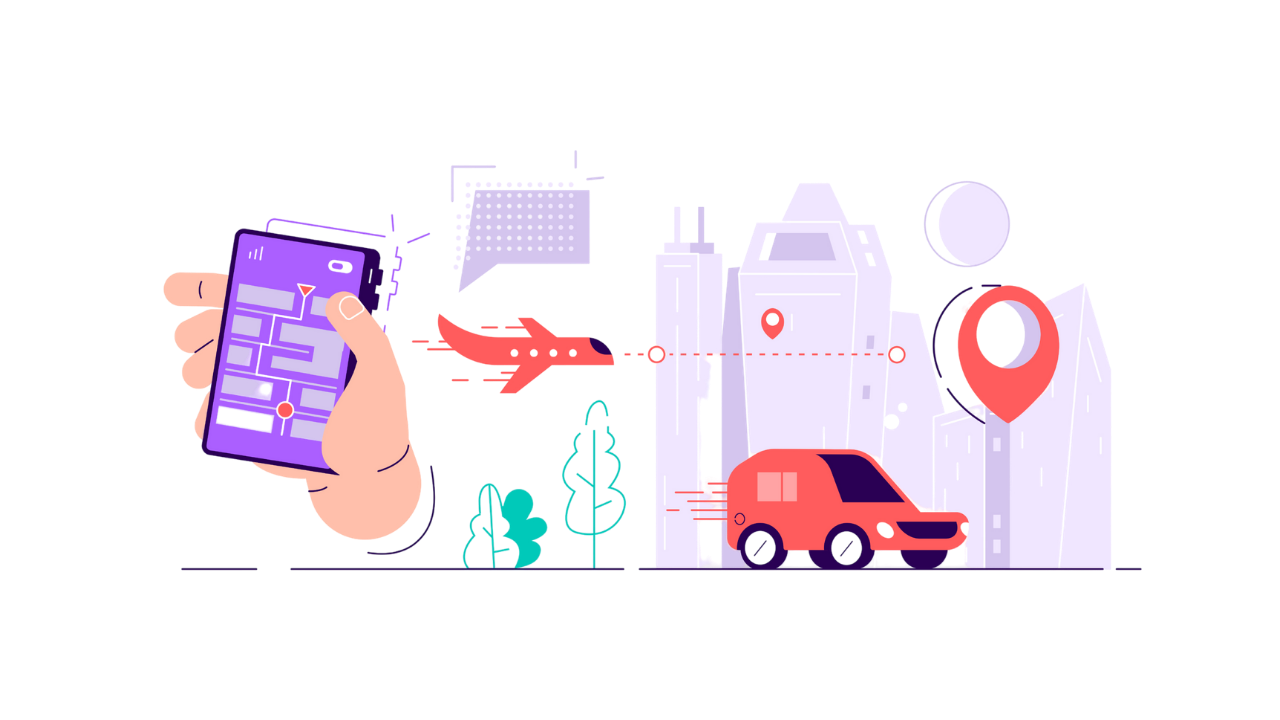Compare Fleet Tracking Solutions:
Australia’s smartest quote comparison site

Why fleet tracking?
No matter what the size of your fleet, the wheels must be constantly moving. Companies that use vehicles in their day-to-day work face many challenges including high costs and customer expectations, plus worker safety and productivity issues. Fleet tracking systems allow business owners to make informed decisions by tracking where their vehicles are in real-time, providing greater visibility into fleet performance.
What are the benefits?
- Optimize Fleet Availability
- Reduce Fleet Costs by 10%
- Save Money by Saving Time
- No Obligation - No High Pressure Sales
Why fleet management?
 No matter what the size of your fleet, the wheels must be constantly moving. Companies that use vehicles in their day-to-day work face many challenges including high costs and customer expectations, plus worker safety and productivity issues. Fleet tracking systems allow business owners to make informed decisions by tracking where their vehicles are in real-time, providing greater visibility into fleet performance.
No matter what the size of your fleet, the wheels must be constantly moving. Companies that use vehicles in their day-to-day work face many challenges including high costs and customer expectations, plus worker safety and productivity issues. Fleet tracking systems allow business owners to make informed decisions by tracking where their vehicles are in real-time, providing greater visibility into fleet performance.
What are the benefits?
- Optimize Fleet Availability
- Reduce Fleet Costs by 10%
- Save Money by Saving Time
- No Obligation - No High Pressure Sales


Step 1: Find Suppliers
Answer a few questions and we’ll match you with suppliers for your unique scenario.

Step 2: Compare Quotes
Get real personalised quotes from multiple suppliers and compare side by side.

Step 3: Choose
Choose the right quote for your business or continue shopping. No obligations.
Key Benefits You Will Love:

Vehicle Routes
Cut at least 20 percent of your fleet operations costs when you use smart fleet management software that allows you to identify the best routes.

Reduce Fuel & Maintenance Costs
Reduce fuel consumption by monitoring driving behavior such as speeding.

Employee driving behavior and productivity
Pinpoint drivers on a route in real time and make smarter dispatching decisions when sending out orders.

Customer Satisfaction
Increase customer confidence in your company.

Fleet Security
GPS tracking to manage your fleet’s security

Compliance
Keep tabs on fleet responsibilities including working and driving hours, fleet maintenance, vehicle testing, tachograph and other matters to guarantee your fleet compliance.
Fleet Tracking 101: How to choose GPS tracking software
To choose the system that’s right for you, first make sure it has the features your business needs. Most fleet management systems offer a variety of features that come in a standard offering. They should include the following:
- Integration with fuel cards
- Driver safety tracking
- Dashboards that show trending on key metrics
- Communication and navigation options
- Ongoing customer support
Some companies provide additional features that are either included in a standard offering or cost extra.
Other key capabilities to look for
A good GPS fleet tracking solution will also offer the following:
- Alert systems. This means notifications are sent via text and email when something isn’t right with vehicles and drivers. Choose a provider that lets you set alerts for specific occurrences, such as if the driver has gone off-route or is engaging in unsafe driving habits.
- Ease of use. There are some complicated software applications out there, so choose one with a simple, intuitive dashboard. Many vendors provide in-person or virtual demos, so try one before making a commitment.
- Mobile access. Not all GPS fleet tracking applications support mobile device usage. If you need anytime, anywhere access to your software, make sure it’s cloud-based, or check if there’s an app for your preferred device.
- Help/customer support. Find a vendor that lets you contact a representative anytime you need help, whether via phone or live chat. Other types of support include help-desk ticket systems, email support, documentation, and how-to videos.
While the fleet tracking system you choose should fit into your budget, don’t pick one solely on price; select the solution that best helps your business reduce costs and track your fleet. If you choose the cheapest service, it may not perform as well as slightly more expensive offerings.
Taken from https://www.businessnewsdaily.com/8290-gps-fleet-tracking-guide.html
Learn More About Fleet Tracking
Key Fleet Management KPIs Your Software Should Capture
Depending on the level of sophistication, a fleet management software can start from $3.00…
The Features You Should Look For In Fleet Management Software
Technology has made it easier for fleet owners and managers to change the way they do business. In the past, monitoring fleets had been a challenge because of the lack of fleet management software to organize the overall function of fleets. As more companies continue…
What Are The Different Fleet Management Functions?
If you’re in the business of transport like logistics, or if you run a hospitality business or any business that needs an effective fleet to support your daily operations, you already know that fleet management is a pivotal part of your business. For many business…
Do You Need A Fleet Management System?
For fleet owners, the tasks involved in managing fleets can be overwhelming. Without a fleet management system to ensure that everything is in proper perspective, you can expect your daily operations to be chaotic. Unorganized business operations can result in having higher overhead costs. Delivering…
Frequently Asked Questions
Technically speaking, both a large, nationally-operating trucking company and a small, locally-operating delivery company are considered fleets.
So, if you fall into either of these categories or anywhere in between, you’ve got a fleet to run. Regardless of the size and operating procedures of your fleet, you need a comprehensive fleet management program to keep your fleet running as efficiently as possible.
At its core, fleet management covers the practices of overseeing, organising and recording all aspects of a company’s fleet. These managerial duties might include, but aren’t limited to, establishing regular vehicle maintenance schedules, establishing cost-saving measures and implementing new driver training programs.
Depending on your company’s size and the industry in which you operate, the size of your fleet management practices vary.
Recording and maintaining accurate data and information on all aspects of the fleet;
Assessing, managing and mitigating all associated risks at every level of your organisation;
Analysing recorded data, extrapolating issues from the data and recommending solutions;
Establishing situational processes and procedures for a variety of scenarios and circumstances that the fleet may encounter.
A successful fleet management program boosts your company’s well-being with the following:
Lowered costs, greater returns;
Increased overall business efficiency;
Improved employee happiness;
Strengthened corporate peace of mind.
Essentially, if your business needs multiple vehicles to properly function, you need some form of fleet management to ensure that your fleet is operating safely and to its greatest potential.
The type of fleet your company has will play a big part in determining how you proceed with the establishment of your fleet management program.
Small businesses – florist and gift delivery, catering and food delivery, cleaning service, electrician/plumbing/HVAC, landscaping;
Large businesses – rental car/truck services, moving companies, taxi companies, delivery companies, long haul semi-trailer companies.
Fleet tracking systems monitor a variety of issues such as driving routes, idling times, driver down-times, vehicle location and more;
Fleet tracking systems can contribute to an improvement in the overall on-road safety of your fleet. The software can identify unsafe driving practices such as hard braking or excessive driving hours;
In the event of an accident or theft, fleet tracking software can be used to monitor and track vehicles by both the company and by law enforcement. It can also track who has access to the vehicle and/or the cargo and monitor any unauthorised access.
Fleet insurance gives you room to cover all your vehicles under one policy, even if you have a few different models. The upside of this is that you don’t have to spend time compiling figures for every vehicle you look after.





